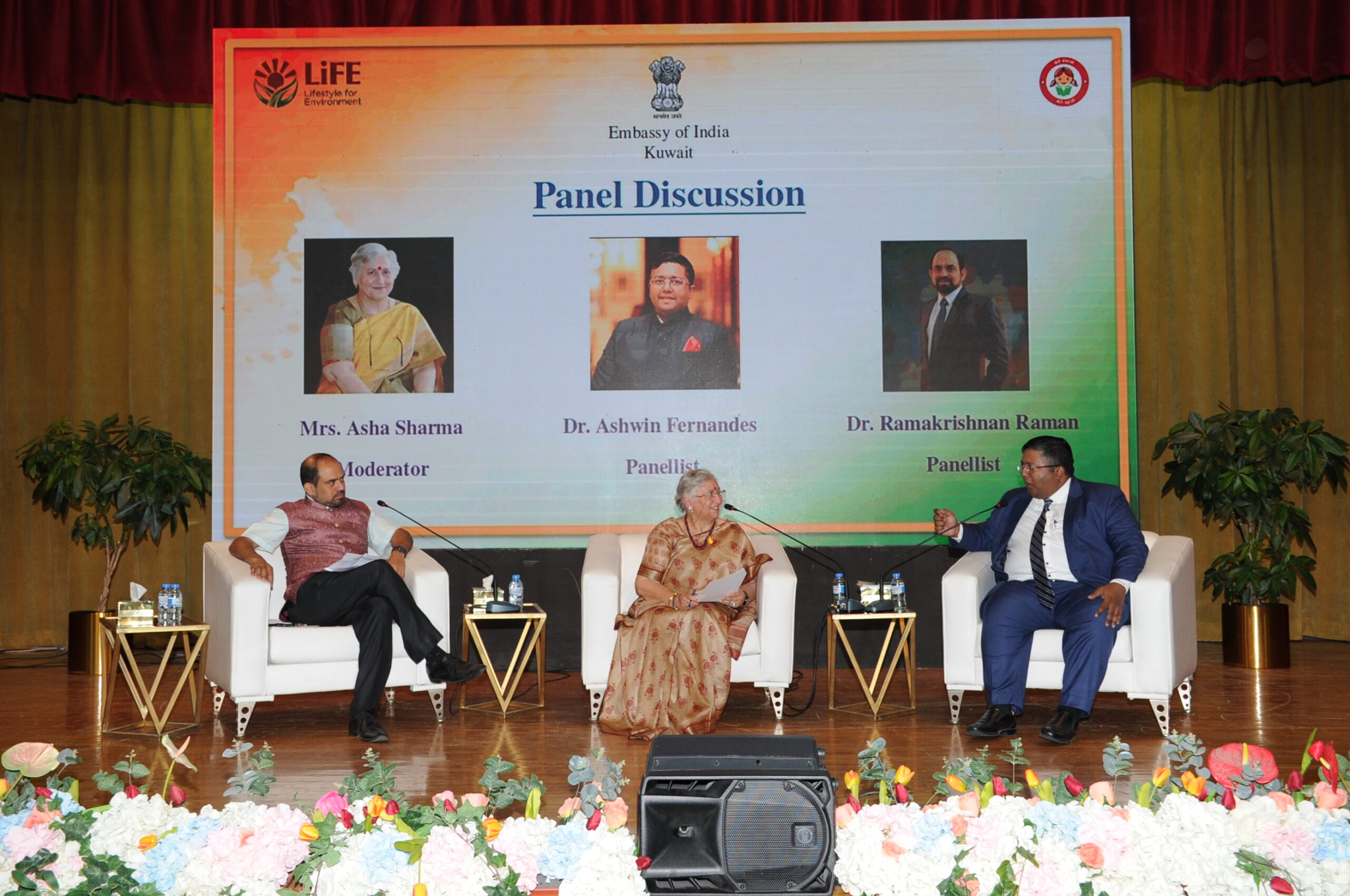Dr. Ashwin Fernandes – a man with a curious mind
Dr Fernandes expressed his belief in the immense potential of today's youth, highlighting how higher education serves as a platform for growth, enabling individuals to take off, fly, and soar

-
Dr. Ashwin Fernandes – a visionary leader with a clear mission – inspires with his honest and impactful words, instilling hope for the bright future of Indian youth
-
Dr. Fernandes works closely with institutions across the regions to support the drive for excellence in education and capacity building
By Sangeeta Jamwal
Special to The Times Kuwait
“Encouragement of higher education for our youth is critical to the success of our collective future” these thought-provoking words were echoed by Dr. Ashwin Fernandes, the executive director for Africa, Middle East and South Asia at Quacquarelli Symonds (QS), and an ambassador of the quality movement in education.
He works closely with institutions and governments across the regions to support the drive for excellence in education and capacity building. Dr. Ashwin Fernandes is also the author of an insightful book “India’s Knowledge Supremacy – The New Dawn.”
Dr. Fernandes is a man on a mission, his words came across as honest and inspiring, above all, listening to him instilled a unique sense of hope for the future of Indian youth. When we began talking, he was candid, “Originally, I am a village person, while in school in Goa we led carefree lives with no idea of the bigger world, or of higher education or how the pursuit of it could change our life. Life has come a full circle and I have made it my mission to work with students and colleges to educate them on the prospects of higher education.
Where I work, Quacquarelli Symonds or the QS World University Rankings is the most comprehensive ranking of its kind, it shines a light on the best institutions from across the world, supporting the mission of enabling motivated people anywhere in the world to fulfil their potential through educational achievement, international mobility, and career development.

Established almost thirty years ago, QS originated from a student of The Wharton School. The ranking module came up twenty years ago to bridge the accountability and transparency gap in universities. There was no standard or benchmarking, so it was an initiative by our founder Nunzio Quacquarelli in 2004 to add a ranking standard. At the beginning it was about Harvard University, University of Oxford, MIT, a concentration of western universities, but over the years we worked with universities and business schools all over the world to identify, shape and deliver higher education strategies that help each institution accomplish its goals and aspirations.
Universities change lives every day, I have been with QS for twelve years, and each year brings us more opportunities to connect with learners and leaders who are changing the face of higher education around the world.
World Bank data has recorded an interesting insight, with the top twenty countries by Gross Domestic Product (GDP) per capita, Purchasing Power Parity (PPP), showing that about out of the 1,500 universities ranked in QS World University Rankings, 900 of them are from the top 20 countries – establishing a direct correlation between thriving economies and great universities. Countries like India and the Middle East are looking to build good economies, but for that you need to build knowledge power houses, which one can achieve by building universities of repute, the tracking of which can be through rankings.
The way QS World University Rankings work, about 45% methodology comes from academic and employer reputation telling us about the best universities, 20% through cutting-edge research work accomplished by universities, 10% through faculty student ratio, 5% through the partners they have collaborated with during research, international students, international faculty, sustainability; as well as alumni outcomes, are their alumni placed in the Forbes 500, Forbes 200 or Asia’s Top Business listed companies
The positive news is that ten years ago India had only 11 universities that were among QS-ranked but now, under the present government under the leadership of Prime Minister Narendra Modi, India has 44 out of 1,500 that are QS-ranked. In the Asia-only ranking, for the first time this year India has overtaken China with 148 universities out of the 800 ranked.”

Dr. Ashwin Fernandes firmly believes India is rising. A decade ago, when he was asked to lead the India strategy from QS, no one was interested in international rankings, even the IITs and IIMs showed no interest. The new Indian leadership gauged that to compete and reach a 44 trillion-dollar economy by 2047, knowledge will have to be at the center of it and India will have to export higher education, for which new universities will be needed that attract students just like Canada, the US and Australia do.
Kuwait, a comparatively young country has three universities amongst the ranked ones. India, given its very glorious legacy should have a lot more. Dr. Fernandes’s rich experience and will to document his thoughts resulted in his book ‘India’s Knowledge Supremacy – The New Dawn’ a project he put his heart and soul into. Dr. Fernandes recalled the time around 2018 when he moved to India, amidst the backdrop of ISRO’s ambitious space programs he saw a cartoon in the New York Times, depicting an Indian farmer with a cow knocking on the door marked ‘Elite Space Club’ where two men sat reading a newspaper.
He felt offended, especially given India’s history where the best universities of the world lay in ancient India. The legacy was subsequently destroyed by a series of invasions and the colonisation. He wanted to showcase the India of today, the legacy we had and then lost. The loot and plundering of invasions and colonisation culminated in the abhorring English Education Act of 1835 which made things worse, it created a system to produce clerks with no creativity or skill, instead, all of India was just dependent on rote learning. In stark contrast he feels the National Education Policy of 2020 is a game changer and will add the much-needed impetus to higher education.

His book is a reference for anybody trying to understand India’s higher education, a concise report on the past predicament of the downfall of Indian universities, the present-day policies changing the face of Indian education, and what the future holds. India’s higher education in private colleges is promising, liberal arts colleges offer unique programs like AI, genomics and biotechnology, revolutionizing education. However, for universities to flourish, they need full academic rigor, and funds must be invested back into research to compete with the top tier universities of the world. Graduation programs are all dependent on research as universities need to inspire students to open their minds to new avenues.
The main challenge to higher education is access, therefore good quality education should be made available. In India the current gross enrolment ratio is 27%, which means that not all the students who should be studying higher education are enrolled. The National Education Policy aims for 50% enrolment by 2035.
Foreign students may not be thronging to come to India; however, the country stands a better chance to attract students from the global south, countries in Africa, south Asia, Latin America.
There is no substitute to higher education, it will always be required as learning needs a solid foundation. Dr. Ashwin Fernandes concluded with his thoughts, “I feel the youth of today have a lot of potential and higher education gives you the platform to take off, to fly and to soar. Help is at hand if you want to study, scholarships are available, online micro credentials are available, if you have a curious mind, the rest will follow.”













